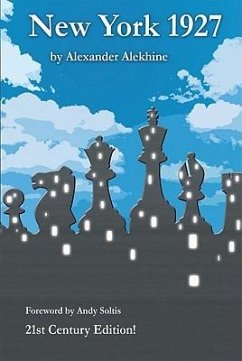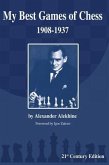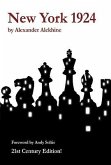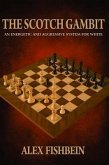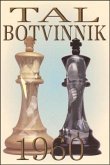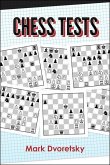Alekhines Controversial Masterpiece Finally in English! For decades, Alexander Alekhines account of New York 1927 was at the top of the list of works that should have been rendered into English but unaccountably were not. Not only do you have one of the greatest annotators of all time rendering some brilliant analysis, but he melds it with an exceptional agenda, an anti-Capablanca agenda. And since he wrote it after defeating Capablanca in their marathon match, he sounds like a sore loser who became a sore winner. So, this is just a mean-spirited book, right? Nothing of the sort. Alekhine goes beyond elaborate move analysis and offers deep positional insights and psychological observations. Nikolai Grigoriev, in his foreword to the 1930 Russian edition of this book, pointed out how Alekhine broke new ground by underlining the critical moments of each game. Why Alekhines work was published in German, in Berlin in 1928, and not in English, is unclear. But now, after more than 80 years, its finally available to the largest audience of chessplayers. Its about time.
Hinweis: Dieser Artikel kann nur an eine deutsche Lieferadresse ausgeliefert werden.
Hinweis: Dieser Artikel kann nur an eine deutsche Lieferadresse ausgeliefert werden.

